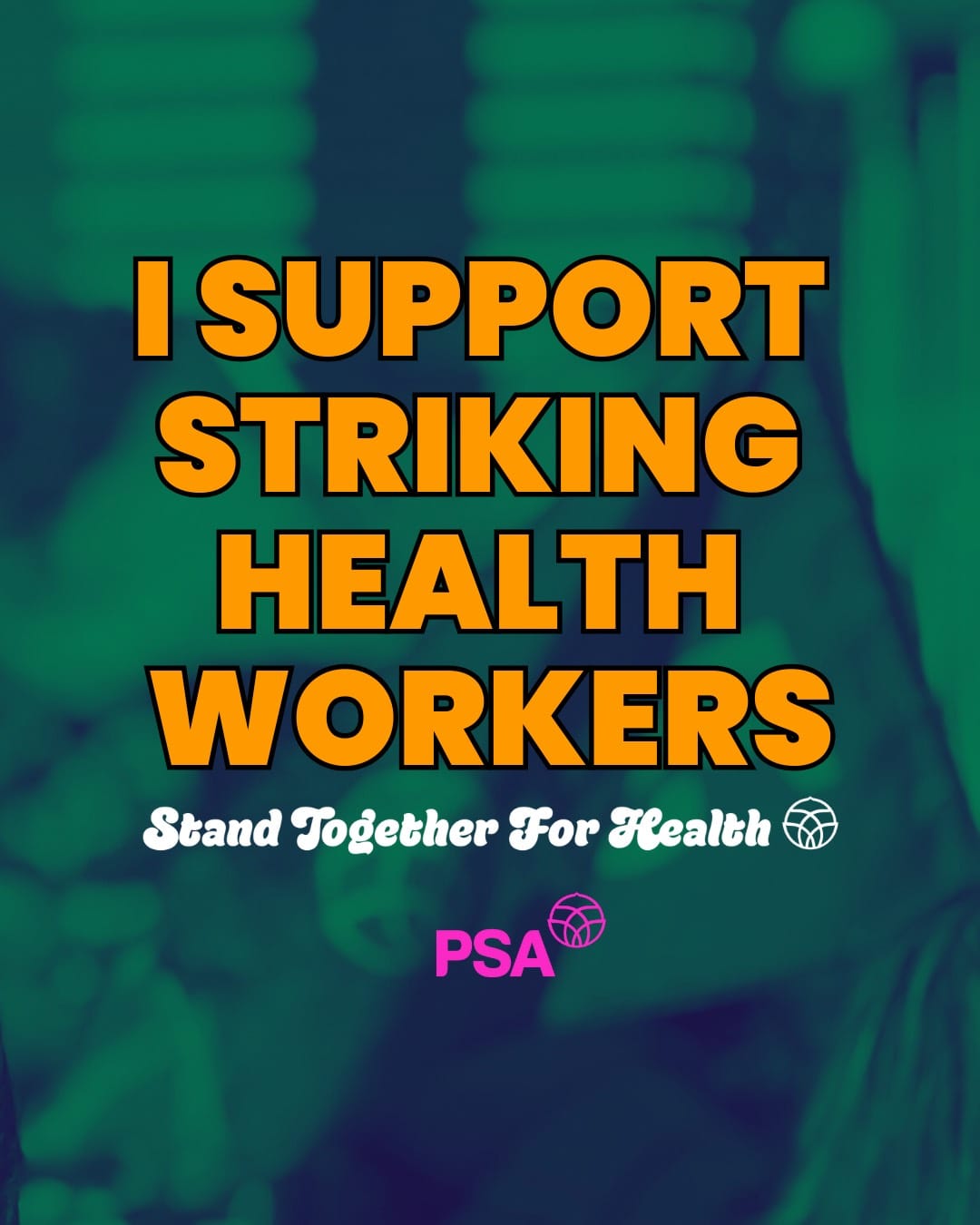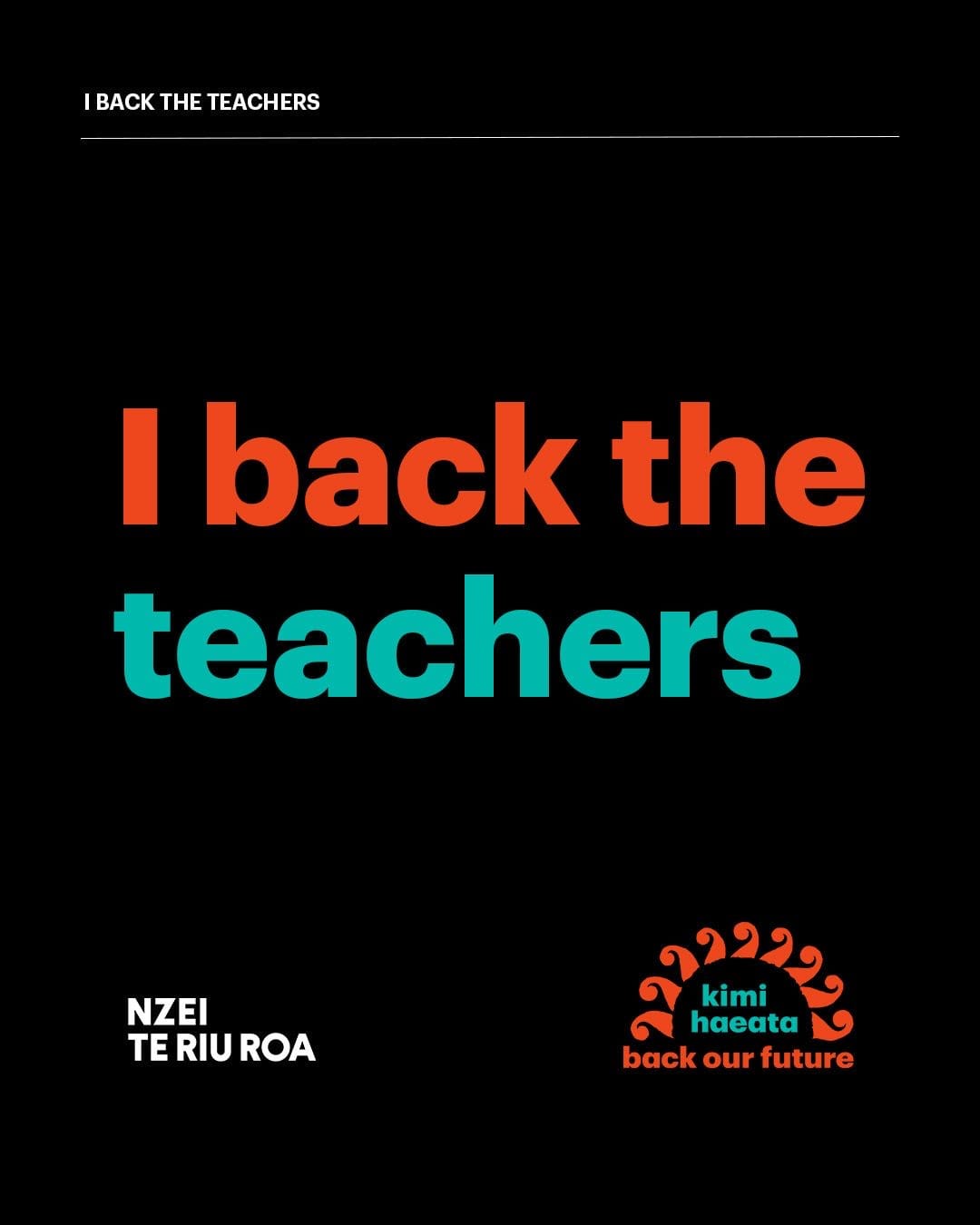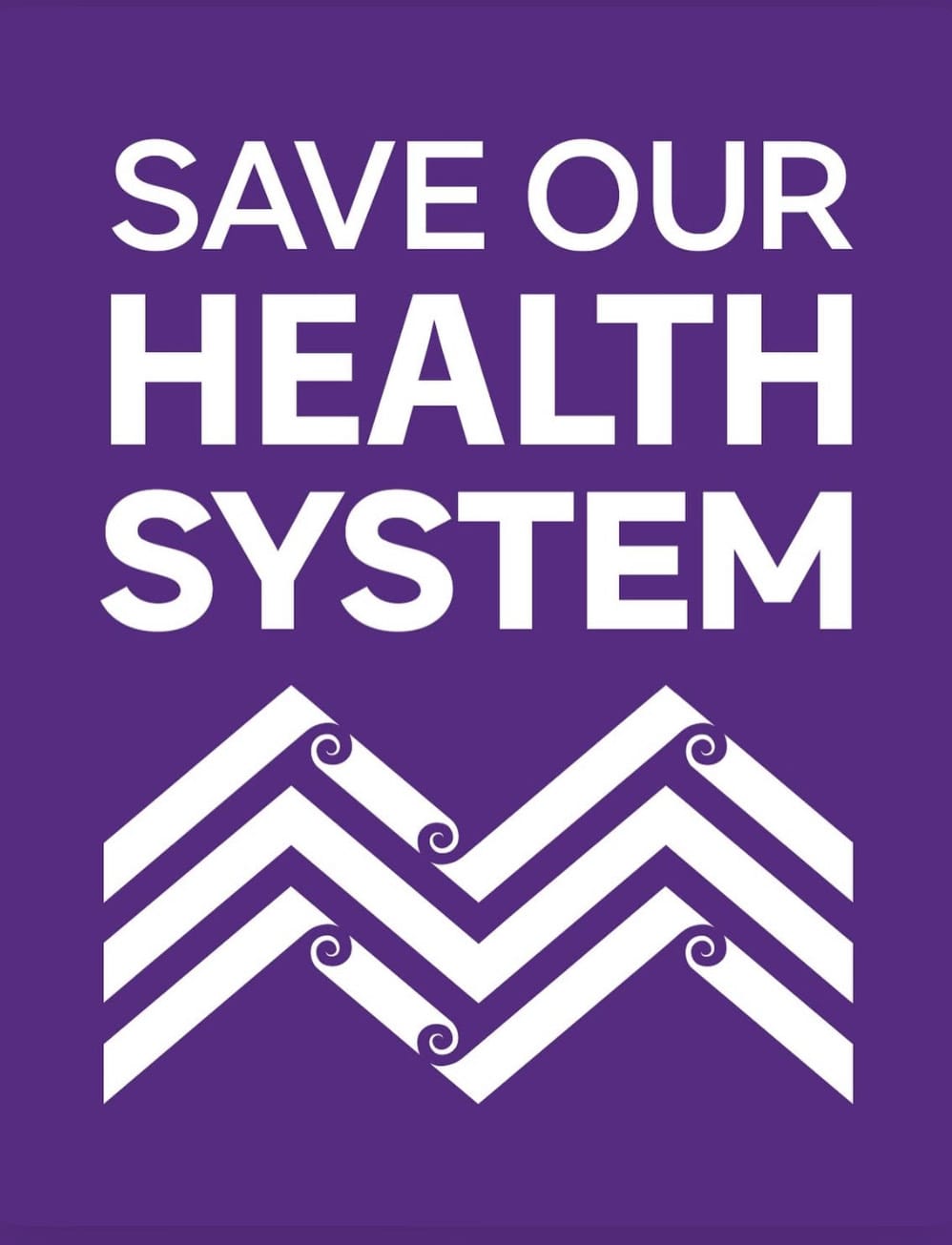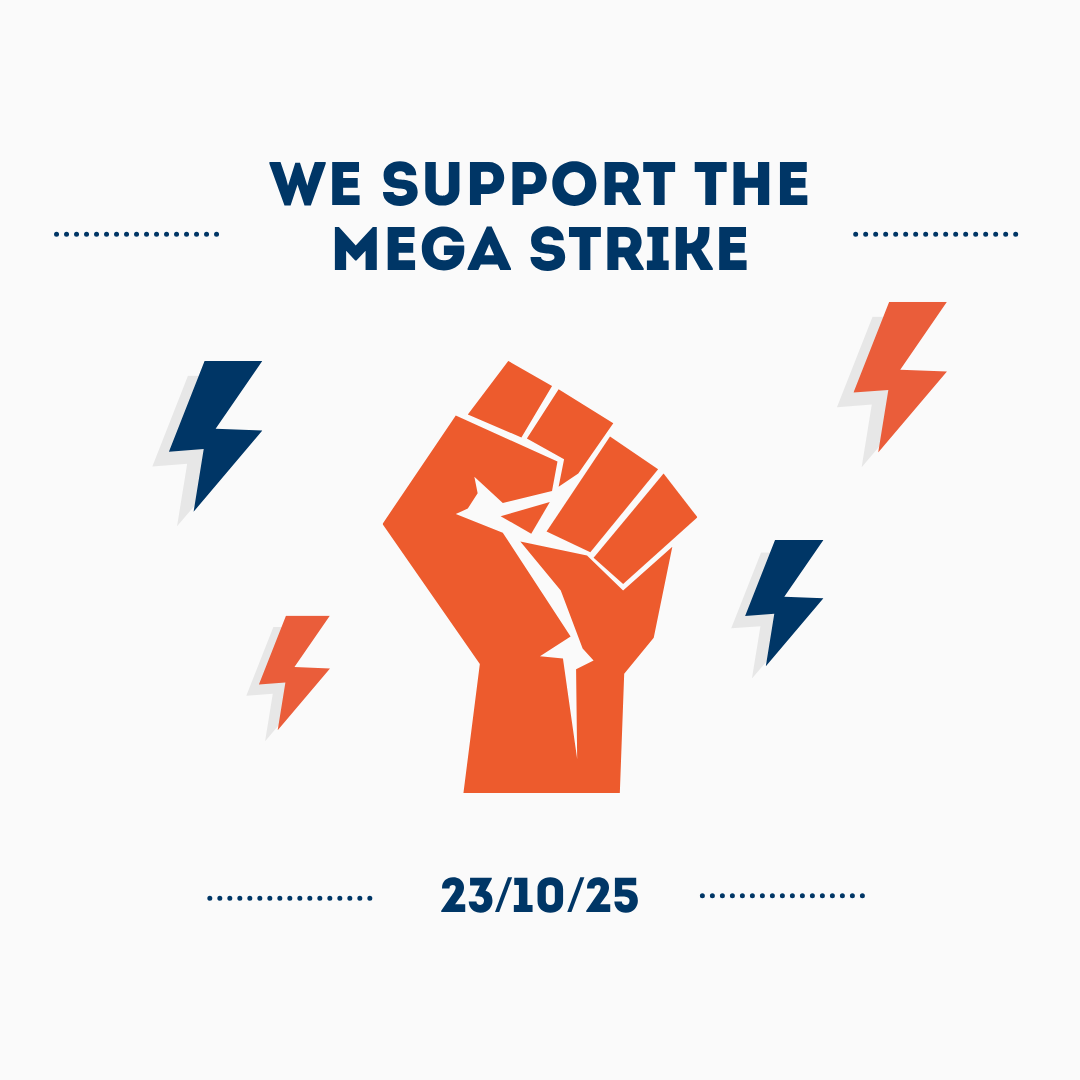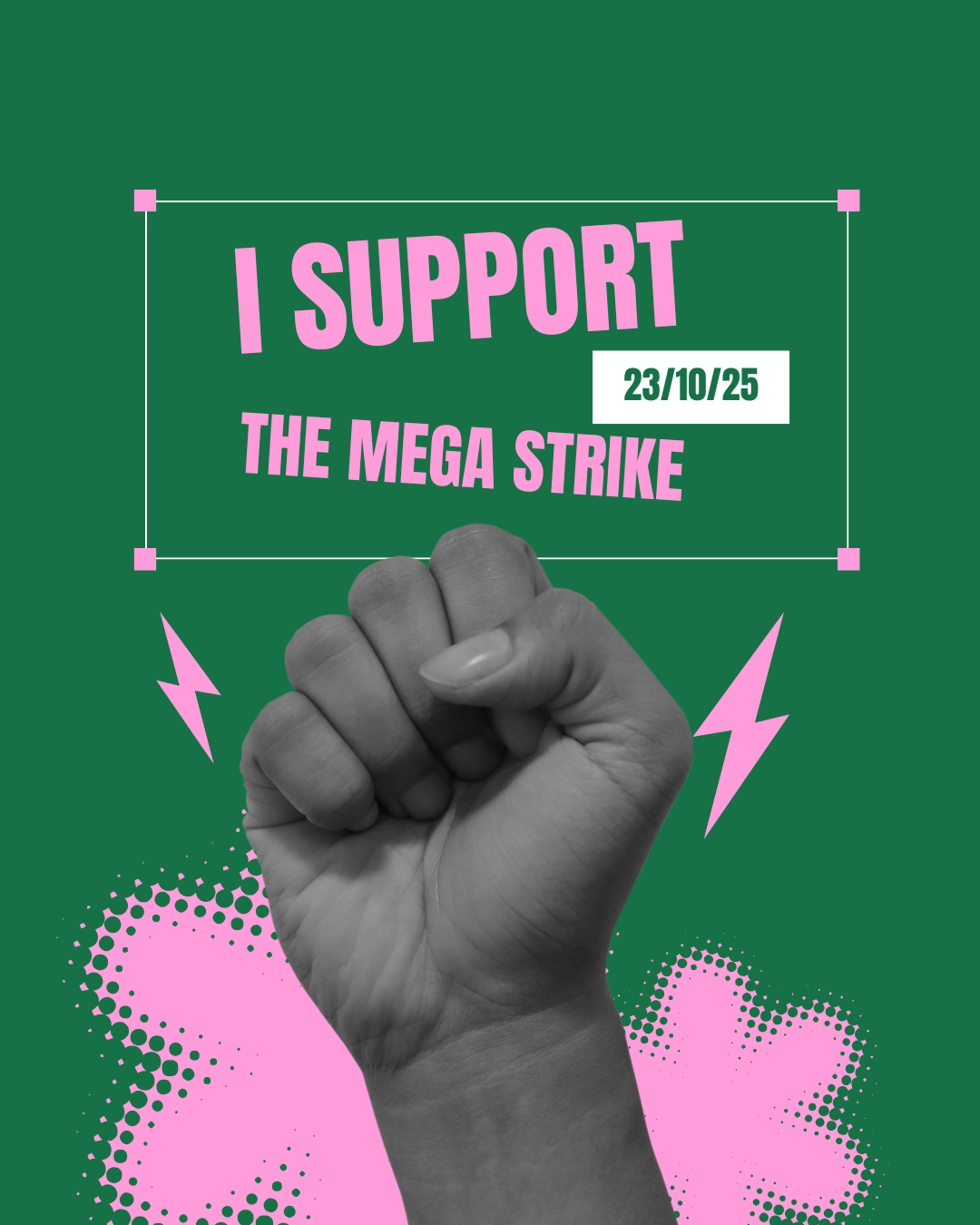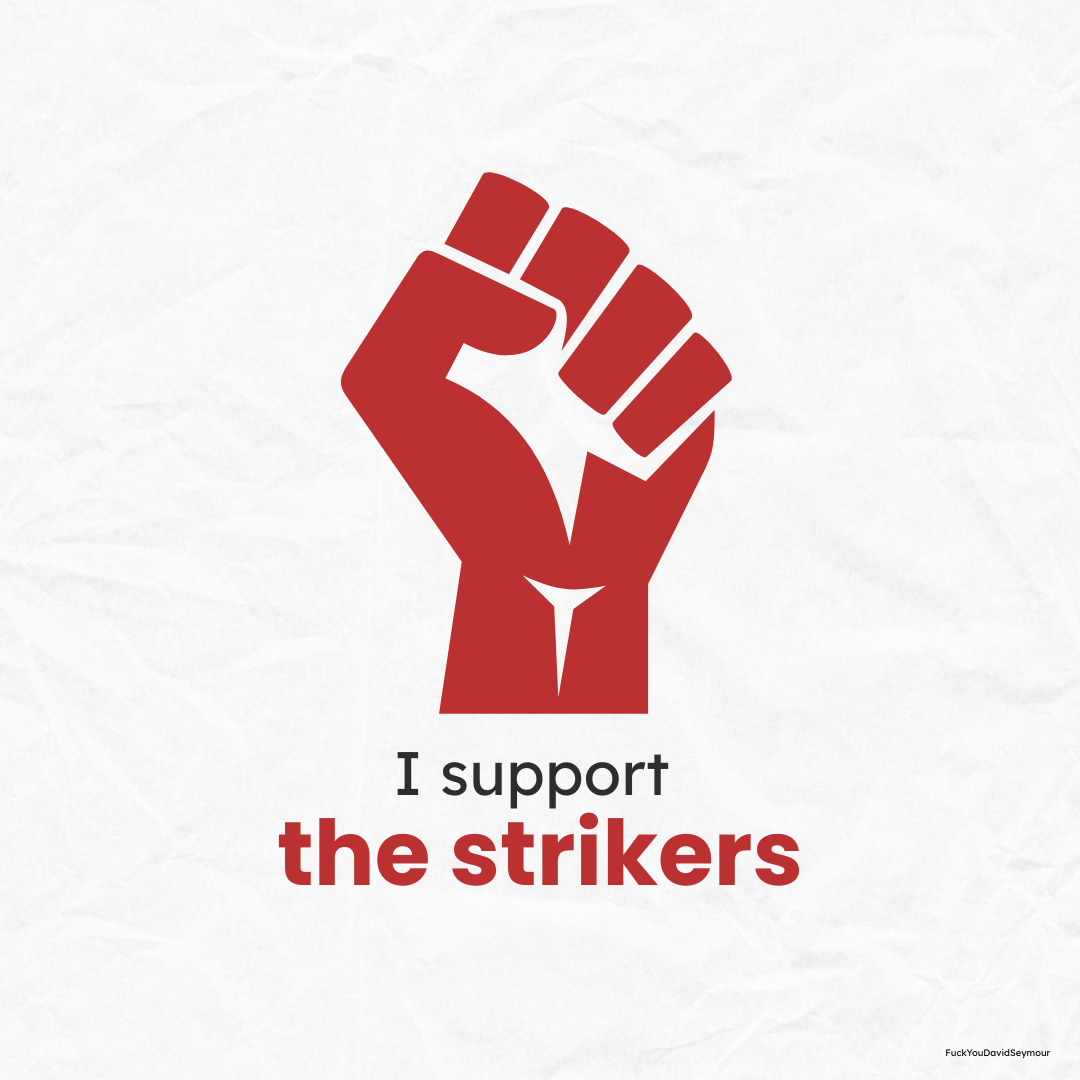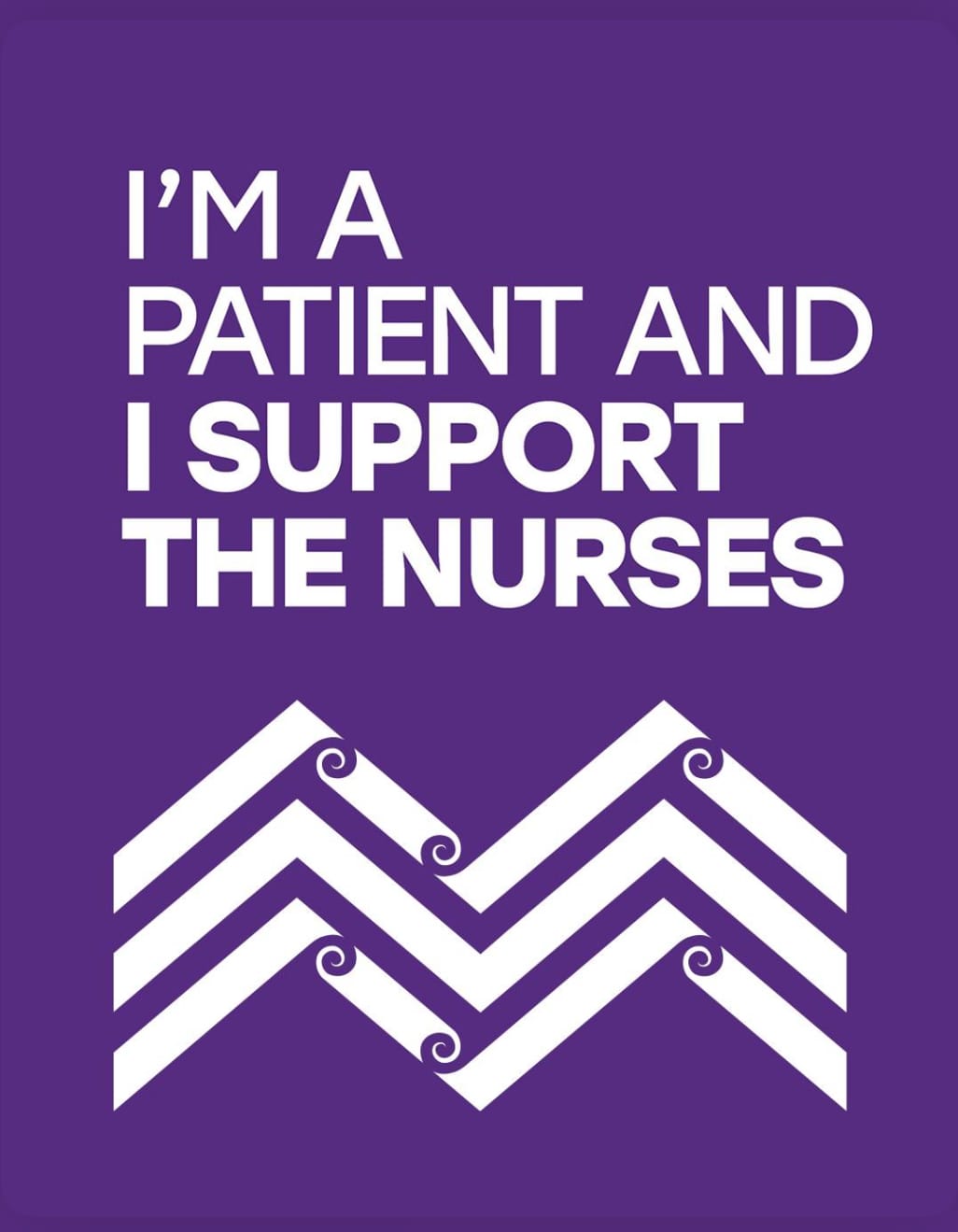100 reasons to support the mega strike
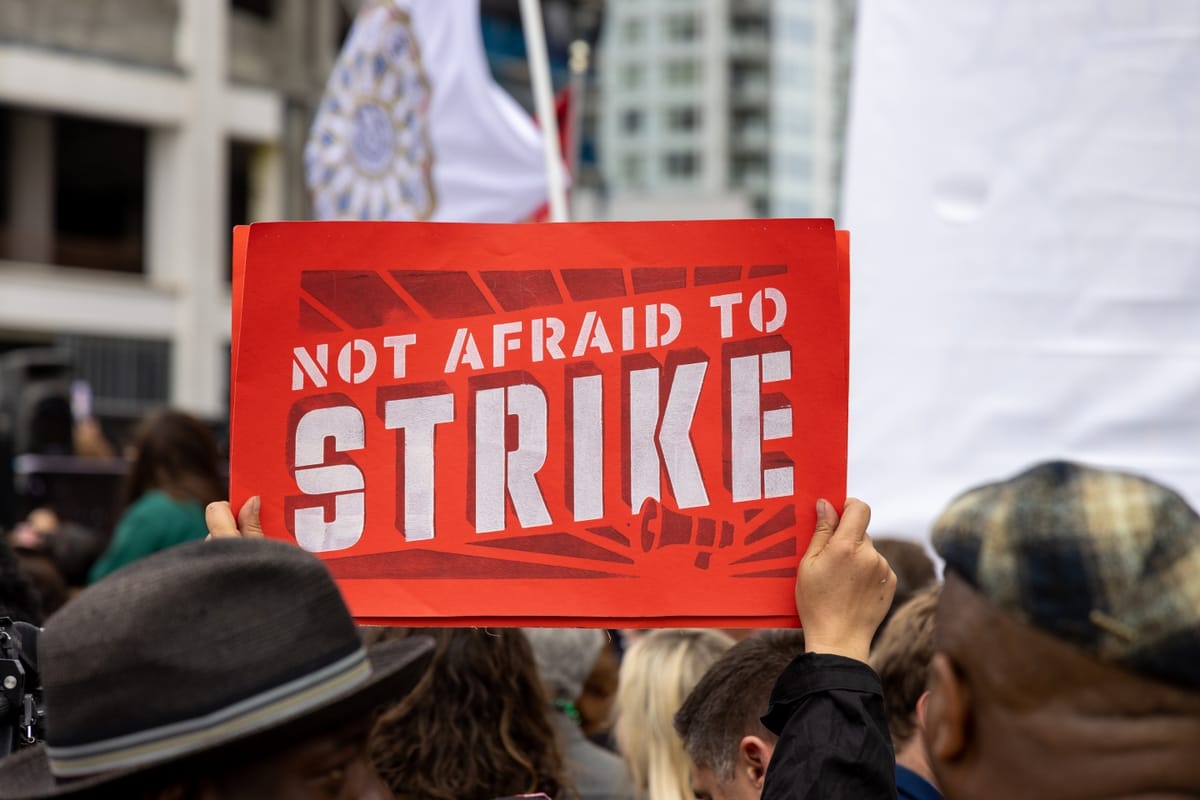
Are you ready to show up?
Tomorrow, more than 100,000 nurses, doctors, teachers, health workers, dentists, social workers, support staff, and teacher aides will strike. It's believed to be the largest industrial action we've had in more than 40 years.
It's also a brave action. Striking takes courage. This can often be lost in the cruel jabs by whatever government of the day is facing strike action. Strikers are often in industries where pay is exceptionally low, their conditions are poor, and their job security is unstable.
Those who strike tomorrow, instead of taking the easier option to scab, deserve our gratitude not just for their courage but for their commitment to this country.
I have spoken to many strikers, and there's one term that keeps popping into my head over and over again: Moral Injury.
Moral injury is defined as psychological harm from committing, witnessing, or being subject to actions that violate your moral code. Last month, it was officially recognised as a mental health condition in the Diagnostic and Statistical Manual of Mental Disorders (DSM).
The Lancet described moral injury as a "potentially morally injurious event" that can include "betrayal by a trusted person in a high-stakes situation.".
An example given is health-care staff with workloads so heavy that they deliver care below the standard they would usually consider good enough.
The paper by The Lancet discusses the lack of treatment for moral injury. But some approaches might help, such as self-forgiveness, acceptance, self-compassion, and (if possible) making amends.
The strikers I've spoken to are striking because they are being put into situations that are against their moral code. Unsafe situations from classrooms to emergency departments. They're understaffed and under-resourced, which means they cannot do what they chose their professions to do. And they're seeing first hand how public sector cuts have harmed those that they care for, those that they've devoted their lives to - patients, pupils, people in need.
The approaches to help those suffering moral injury are internally focused. I think it's essential that we, as the loved ones, parents, children, and family of these patients, pupils, and people in need, step up.
Why should those in caring professions be the only ones to shoulder this burden? How can we help? What can we do?
That's why I'm asking you to show up in any way you can - whether it's attending an event tomorrow, posting on social media accounts (#Oct23Strike), or writing to your MP to say you support the strikes.
Note: Due to the weather, many events are cancelled. Check first! This is why it's more important than ever to support the strikes online if you can't support them in person.
Scroll to the bottom of this email / newsletter for images to share on social media.
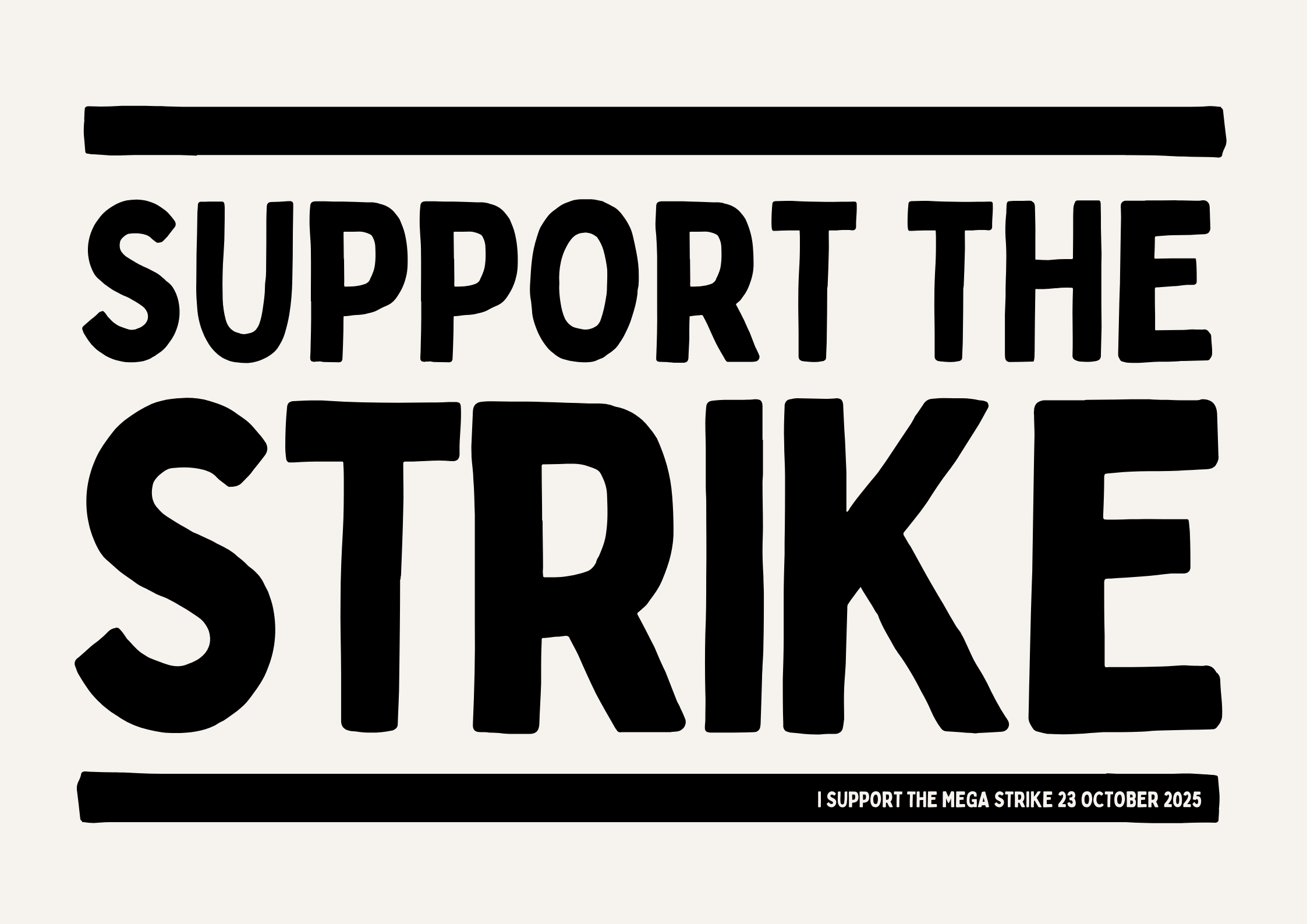
If you're unsure whether you support them, I can only ask if you support any of the following. If there's even one thing below that you don't support, then I don't think you can, in good conscience, say you don't support the strikers. Because this is what they're fighting for.
If you feel like we cannot fund our health, education, and disability sectors, please remember that right now, your taxes are paying for a $2.9 billion tax break for landlords. And that's $800 million more than what the party that claimed it was good at budgeting had initially budgeted for. Instead of paying for emergency departments to have nurses and classrooms to have teacher aides, you're paying for 346 landlords who own at least 200 properties to each make around $464 million between them.
If you feel like doctors, nurses, teachers, principals, dentists, social workers, health workers and support workers should just get other jobs - remember the current job market is being described as the 'longest, deepest, slowest' market and the 'tightest it has been in decades'. New data reveals that almost 30 people are competing for each public sector job. Data from 75 public organisations shows there were nearly 286,000 applications for 10,000 public service jobs in the first half of this year - a ratio of 28.5 applications per role, compared to just eight applications per role in 2023. The number of available jobs is about 50-70% down in many sectors across the country.
I have left out pay issues to focus on what our health and education sectors are saying about safe staffing and support. But the way our most essential workers are paid so poorly obviously pisses me off no end.
So, do you support the following?
In health, hospitals were short an average of 587 nurses every shift last year. Staffing fell short of safe levels on more than 90% of shifts.
Relatives of distressed patients have been asked to come in to help because of a shortage of healthcare assistants.
The issue is so bad that doctors from overseas don't stay. About 44% of doctors here are overseas-trained, and each year, about 70% of new registrations are for international medical graduates. 40% of international medical graduates leave in their first year. By year two, 60% have left.
More than 2400 jobs are on the line at Health NZ, with about half of them currently vacant. Health NZ has planned to boost the employment of graduate nurses by hiring them for as few as three days a week, and by reducing on-the-job training.
The Government's new charges for prescriptions have meant more hospital admissions. A study of 71,500 people, published in the New Zealand Medical Journal in May last year, found those who did not pick up a prescription because they could not afford the fee had a 34% higher rate of being admitted to hospital.
Flu vaccines are no longer free for all under-12s - Influenza accounts for more than half of all potentially vaccine-preventable hospitalisations of children under 14 in New Zealand. But those living in poorer areas are three times more likely to be hospitalised due to a lung infection.
There is a nationwide shortage of 485 general practitioners. A recent survey found that two out of three general practices are now charging patients for what used to be free, and 29% of general practices had reduced their services. And 85% of practices have recently or are about to increase their fees.
Nearly $500 million in cuts to digital health investment and staffing have led to projects like the national vaccine database being paused. Experts have warned: "the health system would fall back to relying on paper-based systems, carrying serious risks". There are four live measles cases in Aotearoa right now - and a school bus full of children was quarantined last week.
Health New Zealand has ordered an end to double shifts and imposed new limitations on replacing sick staff in wards during the day to save money.
The Mental Health and Wellbeing Commission says that fewer people are accessing specialist mental health services because of workforce shortages.
A Health New Zealand Lakes memo said medical cover for infant, child and adolescent mental health services reduced by 90%. New Zealand has the highest suicide rate for children, a survey of wealthy countries shows.
There have been continued attacks on Māori health, including the scrapping of Te Aka Whai Ora. The Māori Health Authority was destroyed under urgency in less than 24 hours. The government’s Pae Ora amendment bill silences Māori voices in health. This year's Health budget allocated just 2.7% of spending to delivering hauora Māori services.
In education, it's not any better. Every day, teachers are blind-sided by curriculum changes. More than 650 principals have said the changes are too much, too fast, and are being pushed through without enough support.
New Zealand teachers report higher stress and longer hours than the OECD average. A recent survey found 76% of teachers said they need more support staff. This was followed by reduced class sizes (70%), more time to work with individual students (64%).
For every seven students receiving support in school, an additional three had unmet needs, according to the previous government's review of high needs support. At least 54% of our teacher aides are on insecure fixed-term contracts.
Restrictions were placed on purchasing rules for disabled people's equipment and support services, with immediate effect last year. Teachers and support staff have been picking up the pieces.
Children and families can no longer access funding or subsidies for disability support programmes, like Riding for the Disabled or swimming lessons, during school hours due to the Government’s truancy policy and changes to respite care funding. It’s expected that this will mean the end of organisations like nature therapy and neurodivergent school programmes, which will no longer be able to afford to run.
Teachers and schools are calling for a teacher aide in every classroom. They're also calling for an increase in early intervention teachers, education support workers, psychologists, occupational therapists, special education advisers and speech language therapists.
More than 5000 children are waiting for specialist learning support. There are currently 169 unfilled positions for learning support roles. Psychologists and speech-language therapists are in the highest demand, making up 40% of all openings over the past five years.
The Government spent $153 million on ACT’s charter schools in 2024, which could have fully funded 700 full-time teacher aides. In the 2024 budget, the Special Needs Intervention funding saw a whopping $41.2M cut.
The Aotearoa Educators' Collective have said some schools fear a child will die in their care due to the gaps in support.
A Barnardos Aotearoa schools survey out today has found that 76% of schools have seen an increase in students asking for counselling over the past 12 months – up from 60% in 2023.
More than half say the services available don’t meet students’ needs, with many counsellors only on site one or two days a week, and some schools having none at all. Many schools report that fewer than one in five students access counselling, but most believe that far more would benefit, with closer to four or five students out of every ten needing help.
Due to government cuts, all children at Auckland schools judged to have high needs would next year receive funding for 13 hours, and those with very high needs would receive 20 hours. This is essentially a cut for many children.
The per-hour funding provided was less than the hourly rates schools paid their teacher aides, meaning schools have to top up the funding or provide fewer hours.
Within the savings section of this year's education budget, there were $614m in cuts and reprioritisations. This includes 95,000 early childhood, primary and secondary teachers being denied pay equity, $13m from resource teachers for learning and behaviour for Years 11-13, and the destruction of Kāhui Ako - Communities of Learning - scheme. That cut impacts 1958 schools and 1506 early learning centres, and more than 4000 teachers.
Also cut, $50m from schools' regional response fund, about $40m from resource teachers of literacy, $28m a year spent on teacher professional development, and $14m from resource teachers of learning and behaviour in secondary schools and other cuts.
Early childhood education is also suffering. Thanks to this government, centres can now pay less to relief teachers who fill in when other teachers are on leave. Teachers are now facing relief placements being cut by $8 an hour. Newly qualified early childhood teachers to lose as much as $22m over the next two years.
David Seymour has made it his personal mission to encourage early childhood education centres to make trade-offs between the quality of early learning and its cost. It's believed that as many as 400 ECE centres could close in the next year. This is all while it's reported that Wellington families pay more for childcare than the rest of NZ.
The move to privatise education will only make costs higher for families. Government measures aiming to deregulate early childhood education are likely to undermine requirements for qualified teachers and remove safety and curriculum standards that uphold children’s wellbeing.
And we haven't even got to why firefighters, dentists, social workers, and public servants are striking.
So, is that enough for you to support the strikes? If you do support funding and resourcing health and education in this country instead of paying for tax breaks for the rich and tobacco corporations, be as loud as you can.
And know you're not alone - A Talbot-Mills poll released this morning shows us that 65% of New Zealanders support tomorrow’s Mega Strike. Only 25% are opposed.
To those striking: Thank you. We are with you. And because my husband is a teacher aide, I absolutely know what you're going through!
Don't let the nasty attacks by this government get you down. We are a country that cares about our patients, our pupils, and our people. I do believe you'll see that tomorrow. Kia kaha. The people united will never be defeated.
Share my stuff to your social network of choice!
Just click/tap any of the buttons below and you can share the post to whatever social media site you like.
